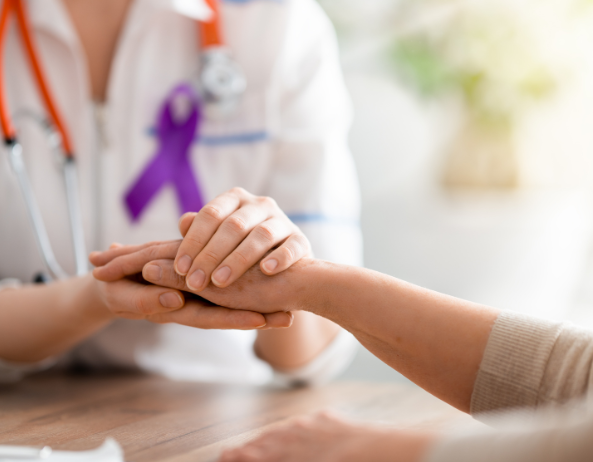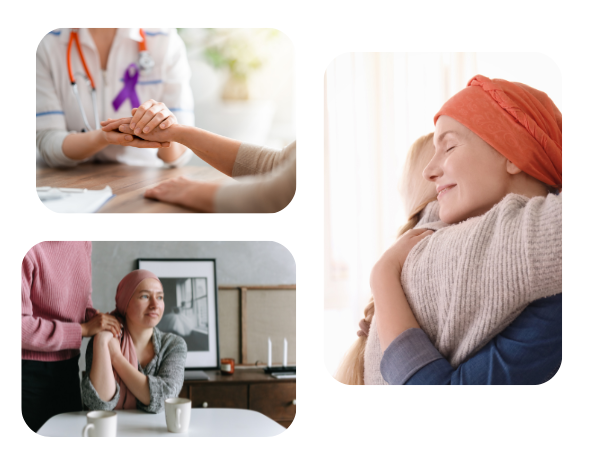Menu
- AyurVAID Shop
AyurVAID Hospitals’ Integrative Cancer Rehabilitation Program (ICRP) is a personalized, comprehensive cancer rehabilitation program that uses classical Ayurveda management to address both primary and secondary cancers. The program focuses on palliative care to improve the patient’s quality of life. Classical Ayurveda therapies are integrated with primary cancer management to alleviate the side effects of chemotherapy and radiotherapy, enhance functional health, and improve overall well-being. In Ayurveda, cancer is sometimes referred to by terms like Nasarbuda, indicating abnormal or uncontrolled growths in the body. Cancer can start anywhere in the body and spread through metastasis. Types of cancer include carcinoma, sarcoma, leukemia, lymphoma, and myeloma. Modern cancer management requires a multi-disciplinary approach, with specialists working together to plan the best treatment. Ayurveda treatment for cancer complements the curative aspects of cancers, enhancing functional health and overall well-being. AyurVAID’s focus on the rehabilitation of cancer patients ensures a holistic recovery through therapies that aid in the rehabilitation of cancer and support long-term health improvement.


Classical Ayurveda therapies at AyurVAID are appropriately integrated with the primary Ayurveda management of cancer to alleviate acute side effects of chemotherapy and radiotherapy to enhance functional health and overall sense of well-being. AyurVAID does not administer any aggressive treatments that are intended to replace the conventional cancer treatment that the patient is undergoing. AyurVAID’s ICRP is positioned as a supportive therapy that seamlessly integrates with concurrent modern medical management, if any, that the patient is undergoing. AyurVAID physicians do not act contrary to what has been advised by the patient’s primary treating physician.
AyurVAID’s Integrative care protocol includes:


Bengaluru – Domlur Bengaluru – Aster CMI, Hebbal Bengaluru – HRBR Layout Bengaluru – Sri Shankara, Basavangudi Bengaluru – Bannerghatta Road Bengaluru – ArekereDelhi – New DelhiKochi – Kadavanthara Uttarakhand-Kalmatia, AlmoraChennai – Greams Road Chennai – Vanagaram Chennai – Kotturpuram Hyderabad – Somajiguda
Ayurveda Parasurgery Autoimmune Disorders Blood Disorders Cardiology Dermatology Endocrinology Ear-Nose Throat-Mouth Elder-Care Gastrointestinal Gynaecology Integrative Oncology Infectious-Diseases Liver-Hepato-Biliary-Care Mental Health and De-addiction Male-Reproductive-Disorders Nephrology Neurological-Disorders Orthopaedic Disorders Ophthalmology Obstetrics-Integrative Preventive-Health-Wellbeing Pulmonology Pediatric-Development-Disorder Sleep-Disorders
Any use of this site constitutes your agreement to the Terms and Conditions, Privacy Policy and Cancellation and Refund Policy
©2025 Apollo AyurVAID Hospitals. All rights reserved.
Popular Searches: DiseasesTreatmentsDoctorsHospitalsWhole person careRefer a patientInsurance